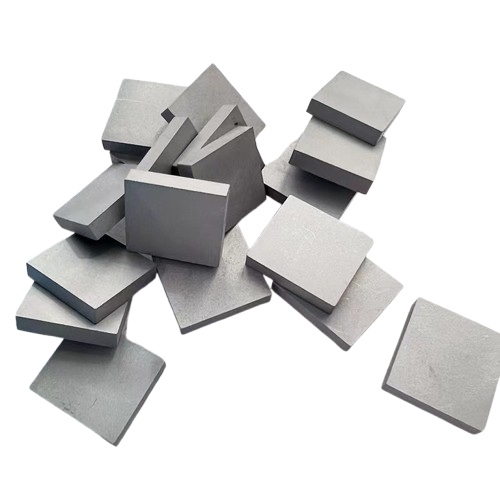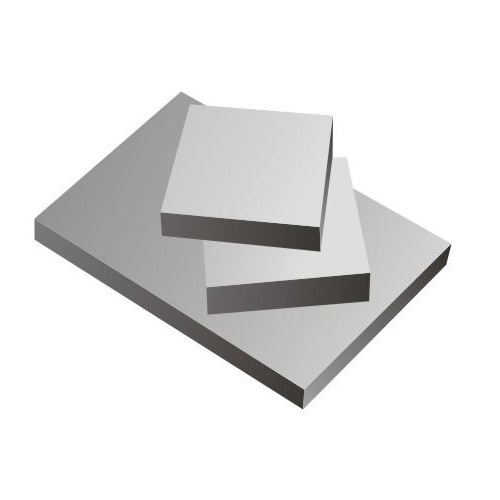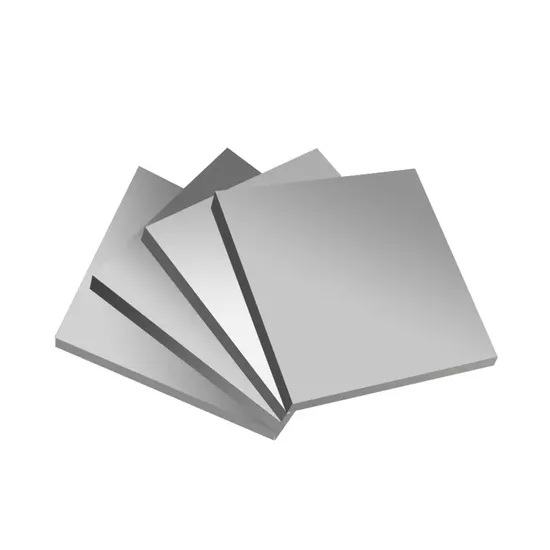Content Menu
● Introduction to Carbide Plates
● Leading Carbide Plate Manufacturers and Suppliers in Japan
>> 1. Sumitomo Electric Hardmetal Corp.
>> 2. DIJET INDUSTRIAL CO., LTD.
>> 3. Nippon Tungsten Co., Ltd.
>> 4. Mitsubishi Materials Corporation
>> 5. NISHIGUCHI CO., LTD.
>> 6. OSG Corporation
>> 7. A.L.M.T. Corp. (Sumitomo Group)
>> 8. UNION TOOL CO.
>> 9. TUNGALOY CORPORATION
>> 10. Fuji Die Co., Ltd.
>> 11. Noto Alloy Co., Ltd.
● Carbide Plate Manufacturing Process: Japanese Expertise and Innovation
>> Powder Preparation
>> Compacting and Forming
>> Sintering
>> Finishing and Processing
>> Inspection and Quality Assurance
● Major Applications of Carbide Plates from Japanese Suppliers
>> Metalworking and Tooling
>> Mining and Construction
>> Woodworking and Composite Processing
>> Automotive and Aerospace Components
>> Oil & Gas Exploration
>> Electronics and Precision Manufacturing
>> Medical Devices and Scientific Instrumentation
● Advantages of Choosing Japanese Carbide Plate Manufacturers and Suppliers
● Industry Trends and Future Outlook
● Conclusion
● Frequently Asked Questions (FAQ)
>> 1. What factors distinguish Japanese carbide plate manufacturers and suppliers from competitors?
>> 2. Which industries most commonly require carbide plates from Japanese suppliers?
>> 3. How do Japanese suppliers ensure the quality of their carbide plates?
>> 4. Are custom-designed carbide plates available for global OEMs and what is the support process?
>> 5. Are there environmental advantages to sourcing carbide plates from Japanese suppliers?
Carbide plates are vital components within many advanced industries, prized for their exceptional hardness, wear resistance, and ability to withstand tremendous stresses. For decades, Japan has maintained its global reputation as a premier supplier of high-quality carbide plates and related products. This article explores in depth the landscape of top carbide plate manufacturers and suppliers in Japan, detailing their technological prowess, manufacturing processes, product applications, and the factors that set Japanese suppliers apart in the world market.

Introduction to Carbide Plates
Carbide plates are essentially composite materials, formulated by uniting extremely hard particles of compounds such as tungsten carbide with metallic binders like cobalt or nickel. The resulting material combines the best aspects of its constituents—unmatched hardness, steadfast toughness, remarkable heat resistance, and outstanding longevity. These properties make carbide plates indispensable in the tooling and manufacturing sectors, where performance and reliability are critical.
The increasing focus on efficient production, precision, and advanced engineering across sectors such as automotive, aerospace, electronics, mining, and medical device manufacturing continually drives demand for high-quality carbide plates. This rising need, in turn, pushes manufacturers to innovate, optimize, and assure the quality of their products—areas where Japanese companies consistently shine.
Leading Carbide Plate Manufacturers and Suppliers in Japan
Japan's commitment to quality and innovation is evident in its robust carbide tooling industry. The following companies are widely recognized for their exceptional capabilities, industry leadership, and global supply capacity:
1. Sumitomo Electric Hardmetal Corp.
A core division of the Sumitomo Group, this company specializes in cutting tools, wear-resistant components, and all types of carbide plates. With significant investments in R&D and advanced manufacturing, Sumitomo Electric delivers world-class products for precision machining and diverse OEM applications.
2. DIJET INDUSTRIAL CO., LTD.
Focusing on carbide drills, endmills, and specialty wear parts, DIJET supports both the aerospace and automotive industries with products engineered for high performance in the toughest environments. Their in-house R&D and manufacturing capabilities ensure strict quality control and fast innovation.
3. Nippon Tungsten Co., Ltd.
Known for its ultra-high purity tungsten carbide powders and advanced composite rods, Nippon Tungsten is a preferred vendor for industries that require exceptional hardness, durability, and precision.
4. Mitsubishi Materials Corporation
With a vertically integrated process covering everything from raw material procurement to sintering and final finishing, Mitsubishi Materials is a global presence in carbide plates, cutting tools, and wear parts. Their focus on supporting customers with technical solutions further enables smooth, high-efficiency manufacturing.
5. NISHIGUCHI CO., LTD.
Specializing in both carbide and polycrystalline diamond (PCD) tooling, NISHIGUCHI delivers custom solutions with rapid response times, tailored to meet exacting OEM and production line specifications.
6. OSG Corporation
OSG targets the automotive, aerospace, mold, and energy sectors with its extensive range of carbide and HSS tools, emphasizing high-speed, high-precision performance, and strong export capability.
7. A.L.M.T. Corp. (Sumitomo Group)
A leader in producing carbide for semiconductor, aerospace, and precision engineering, ALMT embodies the Sumitomo Group's focus on innovation and long-term reliability.
8. UNION TOOL CO.
Recognized for its focus on micro tools and superb surface coatings, Union Tool's carbide plate and milling solutions are trusted in the electronics, PCB, and high-precision device industries.
9. TUNGALOY CORPORATION
As a part of the IMC Group, Tungaloy's sophisticated products feature advanced geometries and state-of-the-art coating technologies that are backed by a global supply and support network.
10. Fuji Die Co., Ltd.
Fuji Die's cemented carbide dies and wear parts stand out for their dependability and technical sophistication, aligned with international quality standards and strategic R&D investments.
11. Noto Alloy Co., Ltd.
This manufacturer offers large and long cemented carbide plates tailored to customer specification, leveraging advanced R&D and flexible production.
These and other Japanese carbide plate manufacturers and suppliers consistently deliver precision, durability, and reliability to international industries, often supporting OEM, ODM, and specialized applications.

Carbide Plate Manufacturing Process: Japanese Expertise and Innovation
Japan's leading manufacturers utilize highly advanced and tightly controlled production techniques, ensuring that every carbide plate meets rigorous standards. The general process involves several critical steps, each fine-tuned for precision:
Powder Preparation
High-purity tungsten carbide, often sourced locally or from trusted global partners, is blended with a metallic binder such as cobalt or nickel. Precise ratios and additives are calculated to achieve targeted properties. The mixture is milled and granulated for optimal uniformity.
Compacting and Forming
Depending on the intended final product, various methods are used to shape the blended powder:
- Cold Isostatic Pressing (CIP): The powder is pressed uniformly from all directions, resulting in consistent “green” compacts.
- Uniaxial Pressing: Compression from above and below yields plates or other forms.
- Extrusion and Injection Molding: For producing rods or complex geometries, fine powder mixed with a binder is forced through dies or inject-molded.
Sintering
After forming, the compacted pieces are heated in high-temperature furnaces (up to 1,500°C) in a controlled atmosphere. This sintering phase triggers a solid-state reaction, fusing the carbides and binders into a dense, hard plate with minimal porosity.
Finishing and Processing
The sintered plates undergo several finishing operations:
- Precision grinding: Achieves exact thickness and flatness.
- Surface polishing: Delivers smoothness or required roughness, depending on application.
- EDM (Electric Discharge Machining): Creates intricate shapes and holes.
- Coatings: Many plates receive PVD or CVD coatings for enhanced wear resistance, lubricity, or corrosion protection.
Inspection and Quality Assurance
Strict quality control is applied at every manufacturing stage. Japanese manufacturers deploy advanced inspection tools such as laser measurement, ultrasonic testing, and metallographic analysis to ensure optimal properties.
This systematic, multi-stage process assures that each carbide plate meets the demanding needs of end users, whether for standard wear components or highly complex, custom OEM parts.
Major Applications of Carbide Plates from Japanese Suppliers
The outstanding durability and material properties of Japanese carbide plates make them suitable for countless high-value applications. Key uses include:
Metalworking and Tooling
Carbide plates are key materials for cutting tool inserts, precision dies, and wear pads in CNC machinery. Their extended lifespan and ability to sustain sharp cutting edges minimize downtime and boost factory yields.
Mining and Construction
As wear plates, drill bits, crushers, and pulverizers, carbide components from Japan withstand the abrasiveness of rocks and minerals while preserving both dimensional integrity and tool life.
Woodworking and Composite Processing
Both industrial-scale and specialty tools utilizing carbide plates ensure a long-lasting, consistently sharp edge for saw blades, router bits, and shaping equipment, even in tough composite or hardwood conditions.
Automotive and Aerospace Components
Japanese carbide plate manufacturers supply critical parts for engines, transmissions, and aircraft assemblies. The materials' high thermal resistance and toughness are crucial for operational safety and sustainability in these fields.
Oil & Gas Exploration
Carbide plates are integral to downhole tools, drilling equipment, and components that encounter extreme heat and corrosive environments. Supplier expertise in material science supports increased tool longevity and lower maintenance costs.
Electronics and Precision Manufacturing
Punches, dies, substrates, and custom jigs made from carbide plates enable micron-level manufacturing, which is essential for semiconductors, connectors, and ultra-high-density assemblies.
Medical Devices and Scientific Instrumentation
Specialized surgical instruments and equipment requiring longevity and absolute precision benefit greatly from high-grade carbide plates.
Advantages of Choosing Japanese Carbide Plate Manufacturers and Suppliers
Japanese carbide plate manufacturers and suppliers are renowned for several competitive advantages:
- Meticulous Quality Control: There is a deep-rooted commitment to maintaining strict internal standards, beyond international benchmarks.
- Innovative R&D: Companies continually invest in the latest material science research, new binder technologies, and advanced manufacturing methods.
- Customization: Flexible systems accommodate OEM, ODM, and specialized requirements, with broad support for customized shapes, sizes, and surface finishes.
- Reliability: Decades of export experience and robust logistical infrastructure guarantee timely delivery and technical support worldwide.
- Sustainability: Many Japanese manufacturers actively recycle scrap carbide and optimize processes to reduce environmental impacts.
- Comprehensive Service: Technical consultation, product development support, and post-sales assistance are hallmarks of Japan's manufacturing ethos.
Industry Trends and Future Outlook
The Japanese carbide plate industry is defined by relentless advances in both process and product:
- Precision and Automation: As manufacturing continues to move towards digital twinning, AI-based modeling, and high-speed, fully automated machining, the demand for tighter tolerances and longer-lasting carbide plates escalates.
- Eco-Friendly Initiatives: Manufacturers pursue “clean” sintering and closed-loop recycling programs, recovering tungsten and cobalt while reducing the industry's carbon footprint.
- Global Partnerships: Many Japanese suppliers have established plants, sales offices, or technical centers in Europe, North America, and Asia, ensuring better customer engagement and responsiveness.
- Material Innovation: Research into nano-structured carbides, high-entropy alloys, and new binder systems supports the next generation of cutting and wear applications.
Through these trends, Japan remains not just a producer but a true technology partner for companies worldwide seeking premium carbide plate manufacturers and suppliers.
Conclusion
Japanese carbide plate manufacturers and suppliers sustain their world-leading reputation through a harmonious blend of traditional craftsmanship, cutting-edge technology, and customer-first mentality. Companies like Sumitomo, Mitsubishi Materials, DIJET, Nippon Tungsten, and others provide the essential backbone for industries ranging from automotive to electronics, mining to aerospace. Their unwavering focus on research, quality, precision, and innovative support guarantees OEMs and enterprises worldwide a reliable pathway to performance excellence. For anyone seeking top-grade carbide plate manufacturers and suppliers with proven export service, customization, and technical expertise, Japan stands unrivaled as an international source of quality and trust.

Frequently Asked Questions (FAQ)
1. What factors distinguish Japanese carbide plate manufacturers and suppliers from competitors?
Japanese manufacturers set themselves apart through meticulous process control, ongoing investment in R&D, the ability to deliver fully customized solutions, and long-standing export expertise. Their production balances the finest traditional techniques with state-of-the-art automation, ensuring reliability, consistency, and ultimate customer satisfaction.
2. Which industries most commonly require carbide plates from Japanese suppliers?
The primary user sectors include automotive, aerospace, engineering, electronics, mining, construction, woodworking, oil and gas, and precision medical manufacturing. In each field, Japanese carbide plates are valued for maximizing productivity, reducing maintenance costs, and meeting demanding technical specifications.
3. How do Japanese suppliers ensure the quality of their carbide plates?
Manufacturers apply strict controls at every production phase, from raw material mixing and powder preparation to sintering, finishing, and final inspection. Advanced quality assurance tools, including laser measurement systems and metallurgical analysis, guarantee each plate meets or exceeds international standards.
4. Are custom-designed carbide plates available for global OEMs and what is the support process?
Yes, most major Japanese manufacturers provide tailored solutions for dimension, shape, surface finish, and specialized coatings. Dedicated technical support teams guide customers from initial design and material selection to prototyping, production, and long-term logistical support for global delivery.
5. Are there environmental advantages to sourcing carbide plates from Japanese suppliers?
Japanese carbide plate manufacturers invest heavily in sustainability, featuring closed-loop recycling, energy-efficient production, and reduced emissions. Many recover nearly all valuable metals from manufacturing scrap, participate in industry-wide green initiatives, and actively contribute to responsible consumption and production agendas.
















